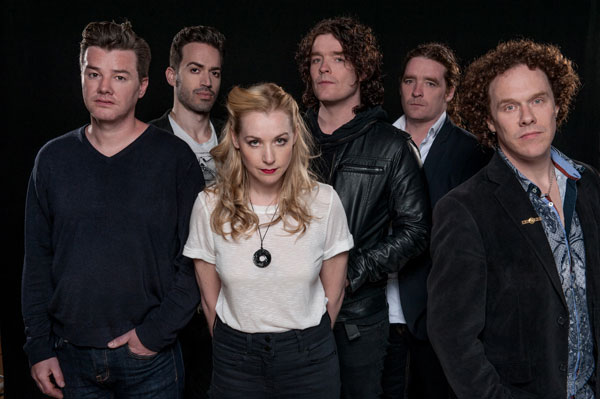As human beings we are constantly evolving throughout our lives. With evolution comes progression, and for Liverpool, England rock band Anathema, the process has been a magnificent journey since their formation twenty four years ago. Originally formed as a doom death metal band in their youth, brother’s Vincent and Danny Cavanagh have been host to a series of changes in their sound and style that occurred over the course of nine studio albums.
Forming a dedicated following worldwide, the most obvious turning point for many listeners would have to be Judgement (1999), leading into a series of progressive rock albums including A Fine Day to Exit (2001), A Natural Disaster (2003), and We’re Here Because We’re Here (2010). With a few line-up changes, finding themselves a new home with Kscope Music, Anathema saw their most commercially successful album come with Weather Systems (2012), which also saw the band finally tour North America in 2013, playing sold out venues countrywide.
Established as long as the band is, it would be obscure to say they are finally peaking, but that is very well the case with creative juices firing on all cylinders and wasting no time; the band went right back into the studio putting together their tenth studio album Distant Satellites for 2014. The album features production by Christer-André Cederberg, mixing by Porcupine Tree member Steven Wilson, and cohesive song writing that has many fans anxious to dive into.
Clocking in at just under an hour of music, Distant Satellites begins with a mood setting track titled “The Lost Song Part 1”. Opening with piano work by John Douglas, the song immediately lifts off with Vincent’s soothing vocals immediately layered with Lee Douglas’ haunting voice. The track builds gradually, climaxing toward the end with all instruments including distorted guitar kicking in. This is immediately followed by “The Lost Song Part 2” which starts out slightly more melodic with piano and Lee’s voice taking the lead. The chemistry between the instrumentation and Lee’s voice is a moving experience which leaves a feeling of sadness and tranquility as the track moves on. The mood is picked up into a slightly more rock feel on “Dusk (Dark Is Descending)”. Warmed up by an upbeat drum beat, Vincent’s passionate singing draws strong emphasis on each lyric that only intensifies as the track wears on. Leaving himself completely open, with emotional outputs few singers can mention, the complimentary backing vocals of Lee really drive the song home into the magnificent masterpiece that it is.
Providing a dream-like atmosphere on “Ariel”, soft piano melodies and angelic singing by Lee gives way to enormous guitar tone performed by Danny that make the track yet another moving experience. Concluding the final chapter of the opening two tracks is “The Lost Song Part 3” which is dominated by drums and engaging keyboards at the start. Easily a song one can get lost in, a sense of anxiety maybe felt by the listener. This is not at all a negative anxiety though as the music merely creates so much human emotion that provokes the listener to want to breakdown crying, happy or sad. With any already strong mix of tunes, the album takes a deep breath and delivers one of the most beautiful pieces yet with “Anathema”. Vincent’s voice resonates with each word sung and his affection for the lyrics make them that much more effective; conveying an array of feelings that can only be described as therapeutic to the artist as well as the audience.
Never a band to conform to one sound or style, Anathema takes the listener for a completely different experience on the tail end of the album, and that begins with “You’re Not Alone”. Featuring extremely catching vocals, the song transforms into a more electronic sounding piece with a constant beat, layered synthesizer process, and distorted guitars; a rather different approach for the band but also inviting and effective. That leads into the strictly instrumental “Firelight” with a minimal approach with just single note piano textures that provoke a sense of mesmerizing peace. This bleeds directly into the title track which is perhaps the most inventive and brilliant of the entire album. Lead by an electronic beat and the same piano tone as the previous track, over the top of all is Vincent putting on his more dynamic and inspiring singing performance yet. Leaving the listener with an almost outer body experience, the song could be one of the best Anathema has ever put together. Experimentation with sound can sometimes not translate for a positive listening experience, but that is not the case with the closing track “Take Shelter”. Featuring more electronic sounds, the song has plenty of peaks and valleys that keep it strong and interesting.
Distant Satellites is another progressive step in the evolution of Anathema. With thoughtful well-arranged composition, the sound fans have grown to love from Anathema is still present and better than ever before. Their curiosity to continue to push their musical talents to new heights is remarkable and should be recognized by a broader audience. Much like their other albums, Distant Satellites is a moving human experience. The record has many euphoric moments which only get better with each listen. CrypticRock give Distant Satellites 5 out of 5 stars.








1 Comment